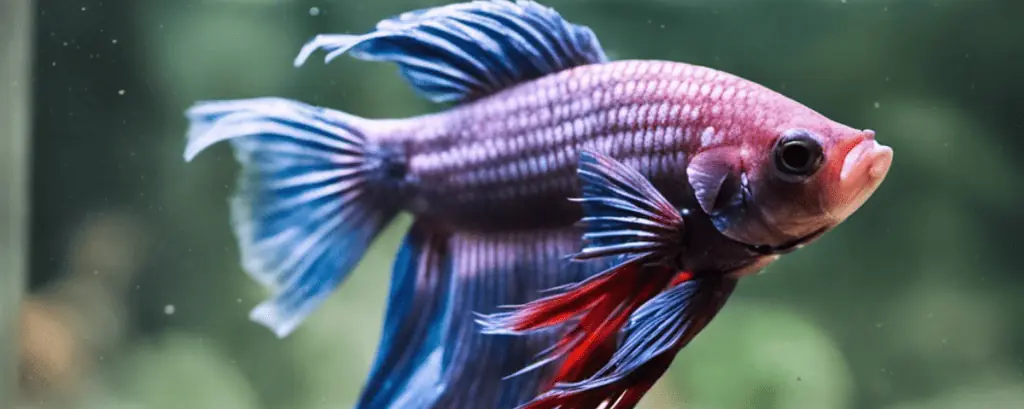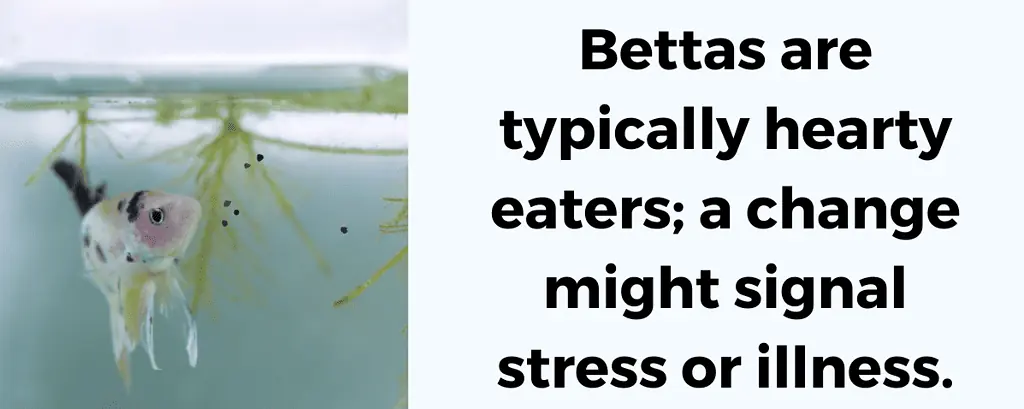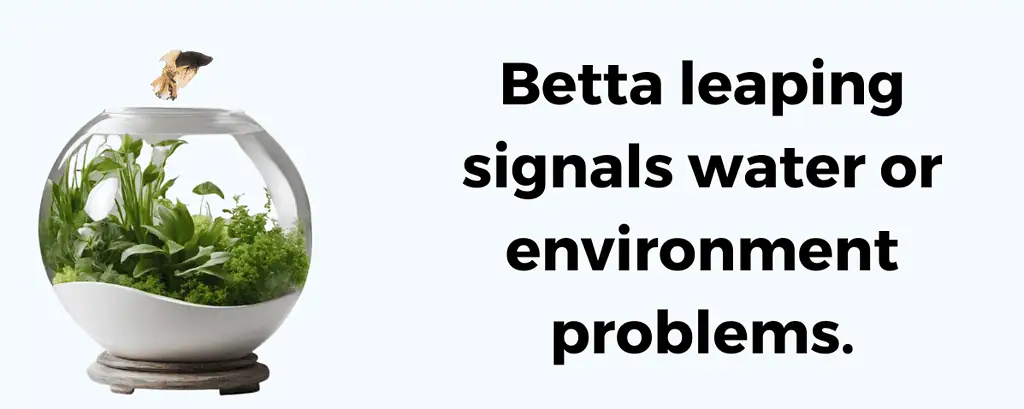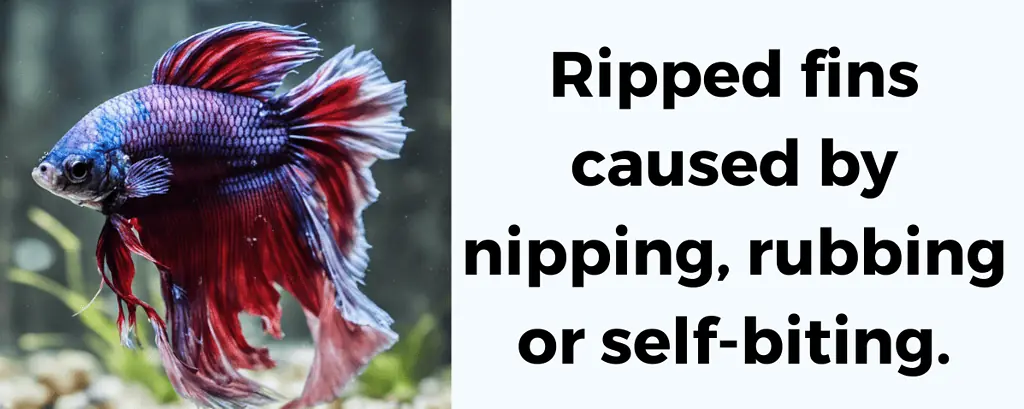When you’re new to the world of Betta fish, learning how to handle their stress can feel like a challenging puzzle.
This isn’t just about navigating their eating habits or swimming behavior.
We are plunging into deeper waters here, discussing the intricacies of water conditions, behavioral patterns, temperature needs, and the flamboyant colors that make these fish cherished pets.
When striving to create the perfect underwater home for your Betta, one challenge stands out – managing their stress.
I’ve spent years studying aquatic life stress markers, so I know first-hand the unsettling feeling when your typically vibrant Betta starts showing stress signals.
These can range from dulling colors to nervous behaviors.
Fear not! This guide aims to be your safe harbor in the storm; offering tried and true wisdom to help alleviate your Betta’s stress and contribute to a healthier, happier aquatic environment.
Table of Contents
Types of Stress for Fish

Like humans, betta fish also experience stress when their surroundings aren’t quite right.
Two main types of stress affect these aquatic creatures: short-term and long-term stress.
Short-Term Stress
Short-term stress, even though temporary, can still harm your betta fish.
This type of stress doesn’t linger but hits hard, causing intense distress to your fish for a brief period.
While lasting only a few days, its effects can cumulate and potentially make your betta sick.
Long-Term Stress
On the other hand, the impact of long-term stress on your betta fish cannot be ignored.
Though not as immediately intense, these stress triggers slowly debilitate your fish.
Long-term stress spans over a longer period, putting your fish in a chronic state of adaptation, which can be tiring.
Letting your fish suffer from prolonged stress will, slowly but surely, compromise their health.
What Triggers Stress in Fish?

Fish may not stress over existential questions, but poor living conditions can cause severe stress.
Fish stress factors range from aggressive tank mates, poor water quality, and lack of enrichment to sudden changes.
Stress in fish falls into two categories – short-term stress and long-term stress.
Short-Term/High-Stress Triggers
Tank Mates
Aggressive fish can harass your betta, leading to stress, injury, and illness.
Bettas thrive when kept alone. Some small, fast fish are fin nippers. They nip your betta’s fins and dart away.
This behavior is stressful and can cause fin rot, a deadly bacterial disease.
Water Conditions
Sudden, dramatic changes in water conditions stress your fish. A large water change might shock your betta.
Maintain a regular schedule of partial and complete water changes to prevent shocking your betta’s system. Remember, as tropical fish, bettas prefer warmer water.
Adding a pitcherful of cold water can be shocking.
Illness
Illness is a stressor. Bettas are susceptible to water parasitical, bacterial, or fungal illnesses. If untreated, these illnesses can be fatal.
Some common illnesses include Fin and Tail Rot, Pop Eye, Cloudy Eye, fungi, Velvet, Ich, Tumors, Parasites, and Bacterial Septicemia or Red Streaks.
As a responsible betta fish keeper, familiarize yourself with these common illnesses.
Long-Term/Low-Stress Triggers
Small Tank
Many betta owners use a 5-gallon tank. However, a larger tank is preferable for room and water quality.
Your betta needs space to swim, rest, hide, and engage in other betta behaviors. A tiny tank won’t cut it.
Overcrowding

It’s easy to overcrowd your fish tank. Remember the rule of thumb – 1 inch of fish per gallon of water.
This gives your fish room to grow! Bettas aren’t great community fish but can coexist with other fish that respect their territorial nature.
Sometimes, bettas are stressed by tank mates without showing signs.
Be cautious when adding other fish to your betta’s tank.
Poor Water Quality
Good water quality is key to your fish’s health. Poor water quality can make your fish susceptible to illness and can be fatal.
Lack of Hiding Places
Bettas need hiding spots, especially if they share their tank.
Bettas like to rest on broad leaves and hide in plants and caves.
These hiding spots reduce stress and aggression in bettas by making them feel safe.
Recognizing Stress in Your Betta Fish

Gasping for Air
If your betta seems to be struggling for breath, this could be due to poor water quality or illness, reducing its ability to get enough oxygen.
Reduced Appetite
Bettas are usually voracious eaters. If yours is not eating as usual, it might indicate stress or illness.
Frequent Illness
Constant sickness in your fish could indicate a problem with water quality. Checking and improving water parameters could help.
Unusual Swimming Behavior
Your betta might be unwell if it doesn’t swim straight and moves erratically.
Dive deeper into the reasons for erratic swimming here.
Increased Hiding
Bettas enjoy hiding but also explore their surroundings. If your betta is hiding more often, something could be wrong.
Color Changes
If your betta becomes pale or loses its vibrant color, it might indicate a problem.
Jumping Out of the Tank

If your betta is trying to leap from the tank, it’s a clear sign of a problem with the water or environment.
Lethargy
An active and alert betta is a happy one. If your betta is lethargic, it’s likely stressed.
Clamped Fins
If your betta clamps its fins against its body, it clearly shows stress. It’s unable to relax.
Rubbing Against Tank Objects
This behavior often indicates parasites or fungi. Look for other signs like white spots, yellow dust, or lesions.
Appearance of Stress Stripes
These horizontal stripes across the body should not be confused with vertical breeding stripes in females.
Stress stripes often appear after a move from the pet store to the home aquarium.
Ripped Fins

This could result from nipping by other fish, rubbing against objects, or self-biting. Tail biting is a definite sign of stress and boredom.
Stunted Growth
Stress can sap your betta’s energy, leading to slow growth.
Ensure plenty of room, a nutritious diet, and a stimulating environment for your betta to thrive.
Glass Surfing
This behavior, zigzagging along the glass, is often caused by boredom, stress, or territorial defense.
Excessive Flaring
Bettas flare to appear bigger and more impressive.
While common, excessive flaring can be a sign of stress and physically taxing for your betta.
Betta Fish Stress Solutions
Regular Water Changes
Make it a habit to change the water every week or two.
It’s a minor stressor, but it’s much less stressful than trying to fix a toxic tank at the last minute.
Regular changes maintain high-quality water, which is crucial for your fish’s well-being.
Invest in a Superior Filter
A top-notch filter is a must. Clean water is life for your fish. But remember, bettas thrive in gentle water flow, like their natural habitat – stagnant ponds, rice paddies, marshes, and slow streams.
Keep the Tank’s Temperature Stable

Bettas don’t handle temperature changes well. Keep your tank’s temperature steady between 78 to 80 °F.
Monitor for Bullies and Separate them
If your betta is bullying or being bullied, separate them immediately. The stress can lead to injuries and fin rot.
Provide Plenty of Hiding Spots
Bettas need quiet, peaceful hideaways.
Use plants, rocks, driftwood, floating logs, and caves to hide in.
Feed Quality Food
Your betta’s health depends on the food quality. Opt for high-quality frozen food, betta pellets, and live food when shopping. As carnivores, bettas need protein-rich food.
Our best betta fish food review will move you in the right direction.
Ensure Adequate Space
Small tanks require frequent water changes and don’t provide enough exercise space for your betta.
A 5-gallon tank just manages the nitrogen cycle. A 10-gallon tank is a better choice.
Dim the Lights
Bettas prefer low-light environments. Reduced light also minimizes their reflection, which can cause stress.
Add Tannins

Tannins from Indian Almond Leaves or driftwood darken the water and provide antibacterial and antifungal properties. You can also consider tannin “tea.”
Use Aquarium Salt
Aquarium salt can treat mild infections and boost your betta’s immune system.
Maintain Proper Bacterial Balance
Don’t just put your betta in a new tank with fresh water.
Regularly check the ammonia, nitrite, and nitrate levels to ensure a safe environment for your betta.
Always Use a Water Conditioner
When adding tap water to the tank, always use a water conditioner.
It removes harmful substances like chlorine, chloramine, and heavy metals, which can stress your betta and prove fatal.
Addressing Illnesses
Spot signs of sickness in your betta fish and take action. Numerous remedies exist to help your ailing fish.
For instance, methylene blue works wonders for minor infections such as mild fin rot.
Remember, constant sickness harms your fish. A severe illness could even be fatal.
Maintain optimal water conditions and offer your betta high-quality food. This goes a long way in preventing illness.
Wrapping It Up

If your betta swims easily in the tank, feeds well, and appears cheerful and engaged, it’s likely content.
However, if signs of stress surface, don’t hesitate to identify and address the cause. It could be other fish or unclean water.
A betta fish typically thrives in a spacious tank with peaceful companions and clean water.
By attending to its needs, you can ensure your fish lives a relatively stress-free and joyful life.


